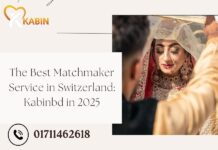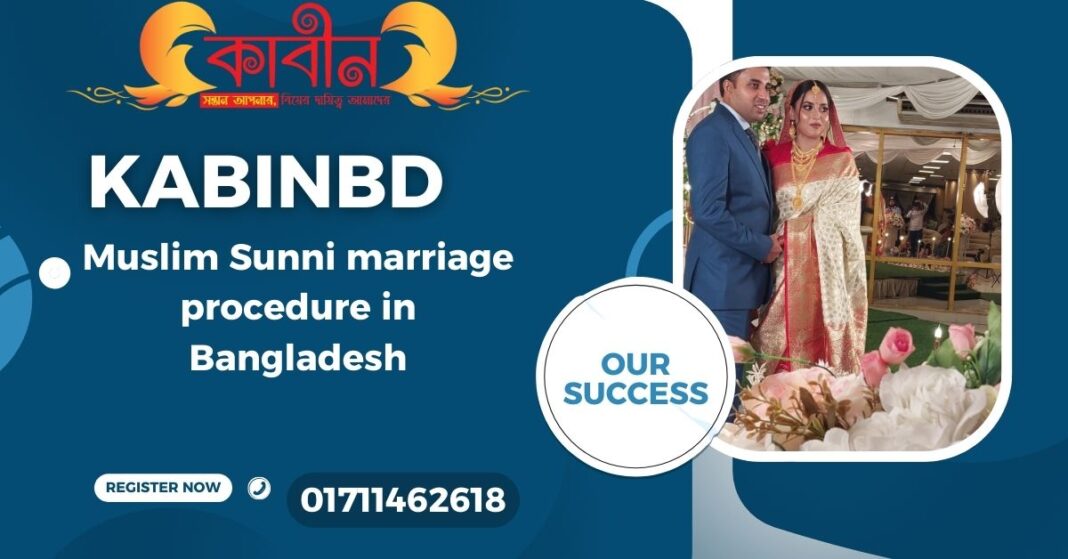Muslim Sunni marriage procedure in Bangladesh
Muslim Sunni Marriage Procedure in Bangladesh
Introduction
Marriage, a sacred institution in Islam, holds immense significance for Muslims worldwide. In Bangladesh, a predominantly Muslim country, the marriage procedure adheres to the principles of Sunni Islam, with certain legal formalities mandated by the state.
This comprehensive guide delves into the intricate details of Muslim Sunni marriage procedures in Bangladesh, encompassing religious, legal, and social aspects.
The Concept of Marriage in Islam
Islam places great emphasis on marriage, considering it a Sunnah (the practice of Prophet Muhammad) and a means of fulfilling human nature. The Quran and Hadith (sayings and actions of the Prophet) provide comprehensive guidelines for marital relationships, emphasizing love, compassion, and mutual respect. Islam places a profound significance on marriage, considering it a Sunnah (the practice of Prophet Muhammad) and a fundamental aspect of human life.
The Quran and Hadith (sayings and actions of the Prophet) provide comprehensive guidelines for marital relationships, emphasizing love, compassion, mutual respect, and responsibility.
Marriage as a Contract
Unlike many cultures where marriage is often viewed as a sacrament or purely social institution, Islam considers it a contract between a man and a woman. This contract involves mutual rights and obligations, creating a framework for a harmonious and stable relationship.
Purpose of Marriage
The primary purposes of marriage in Islam are:
- Procreation: To perpetuate the human race and raise righteous offspring.
- Companionship: To provide emotional and physical support to both partners.
- Completeness: To fulfill the natural human inclination towards companionship and love.
- Preservation of chastity: To channel sexual desires within the bounds of marriage and protect against immoral behavior.
Key Principles of Islamic Marriage
- Consent: Both the bride and groom must freely and willingly consent to the marriage. Coercion or force is strictly prohibited.
- Witnesses: At least two adult Muslim witnesses are required to be present during the marriage ceremony.
- Mahr (Dower): A predetermined amount of money or property that the groom promises to give to the bride upon marriage. It is considered a right of the bride and not a gift.
- Guardian (Walee): A male relative of the bride, usually her father or brother, acts as her guardian. His consent is generally required for the marriage to proceed.
- Equality: While there are distinct roles for husbands and wives, Islam emphasizes equality and mutual respect within the marriage.
- Rights and Responsibilities: Both spouses have rights and responsibilities towards each other. Husbands are responsible for the financial well-being of the family, while wives are responsible for managing the household and caring for children.
Marriage as a Means of Spiritual Growth
Islam views marriage as a path to spiritual growth and development. A successful marriage is seen as a means to attain closeness to Allah through shared responsibilities, mutual support, and the raising of righteous children.
Challenges and Modern Interpretations

Like any institution, Islamic marriage faces challenges in the modern world. Issues such as polygamy, divorce, and women’s rights have sparked debates and varying interpretations. While traditional interpretations prevail in many Muslim societies, there is a growing movement towards a more egalitarian and just understanding of marriage within the framework of Islamic teachings.
In conclusion, marriage in Islam is a sacred institution with profound spiritual, social, and legal dimensions. It is founded on principles of love, respect, and shared responsibility, aiming to create a harmonious and fulfilling partnership between husband and wife.
Challenges and Modern Interpretations of Islamic Marriage
The institution of marriage, while deeply rooted in Islamic principles, has evolved over time and faces contemporary challenges. These challenges have prompted various interpretations and adaptations of Islamic teachings to address the complexities of modern life.
Challenges Facing Islamic Marriage
- Polygamy: While permitted under specific conditions in Islam, polygamy has become a contentious issue in many Muslim societies. Factors such as economic disparities, social pressures, and women’s rights have led to debates about its practice.
- Divorce: The increasing rates of divorce in Muslim communities have raised concerns about the sanctity of marriage. Factors such as changing societal norms, economic pressures, and personal incompatibilities contribute to the rise in divorce.
- Women’s Rights: The issue of women’s rights within marriage has been a subject of ongoing discussion. Ensuring equality, preventing domestic violence, and empowering women within the marital relationship are key challenges.
- Child Marriage: Despite legal prohibitions, child marriage persists in some Muslim communities. This practice has severe consequences for girls’ education, health, and overall well-being.
- Premarital Relationships: The rise of premarital relationships in many societies has impacted the institution of marriage. This trend challenges traditional Islamic values and creates complexities in marital relationships.
- Economic Challenges: Financial difficulties can strain marriages. Issues such as unemployment, inflation, and unequal distribution of household responsibilities can lead to marital conflicts.
Modern Interpretations of Islamic Marriage
To address these challenges, various interpretations of Islamic marriage have emerged. These interpretations seek to balance traditional values with the realities of modern life:
- Egalitarian Interpretations: These interpretations emphasize the equality of men and women within marriage, promoting shared decision-making and mutual respect.
- Rights-Based Approaches: These approaches focus on the rights of both spouses, including financial rights, property rights, and the right to divorce.
- Contextualization: Many scholars and activists advocate for contextualizing Islamic teachings to address contemporary challenges. This involves considering the specific social, cultural, and economic conditions of different societies.
- Emphasis on Education: Educating both men and women about their rights and responsibilities within marriage is seen as crucial for building strong and equitable partnerships.
- Premarital Counseling: Promoting premarital counseling as a means to prepare couples for marriage and address potential challenges is gaining popularity.
It is important to note that while these interpretations offer different perspectives, they all aim to uphold the core values of Islam while adapting to the changing realities of the modern world.
Would you like to explore specific aspects of Islamic marriage in more detail, such as polygamy, divorce, or the role of women.
Essential Components of a Muslim Marriage
A valid Muslim marriage requires the fulfillment of several essential elements:
- Ijab and Qubul: This constitutes the proposal (Ijab) by the groom or his representative and its acceptance (Qubul) by the bride or her guardian. Both parties must express their consent freely and willingly.
Ijab: This is the proposal made by the groom or his representative to the bride or her guardian.
Qubul: This is the acceptance of the proposal by the bride or her guardian.
For a marriage to be valid, the proposal and acceptance must occur in the same gathering.
- Witnesses: At least two adult Muslim witnesses are required to be present during the marriage ceremony.
At least two adult Muslim witnesses are required to be present during the marriage ceremony.
Their role is to confirm the exchange of vows and the agreement between the couple
- Mahr (Dower): A predetermined amount of money or property that the groom promises to give to the bride upon marriage. It is considered a right of the bride and not a gift. A predetermined amount of money or property that the groom promises to give the bride upon marriage.
It is considered a right of the bride and not a gift.
- Guardian (Walee): A male relative of the bride, usually her father or brother, acts as her guardian. His consent is generally required for the marriage to proceed.
Marriage Procedure in Bangladesh
The marriage procedure in Bangladesh combines Islamic principles with legal formalities. It typically involves the following steps:
- Engagement (Isharat):
- While not mandatory, engagement is a common practice in Bangladesh.
- It involves an informal agreement between the families of the bride and groom.
- Exchange of gifts and rings often symbolizes the engagement.
- Nikah (Marriage Ceremony):
- The core of the marriage ceremony, Nikah, can be performed at any suitable location.
- A Kazi (Islamic scholar) or Nikah Registrar usually officiates the ceremony.
- The groom or his representative makes the marriage proposal, and the bride or her guardian accepts.
- Witnesses sign the marriage register.
- The Kazi or Nikah Registrar issues a marriage certificate.
- Legal Registration:
- Under the Muslim Marriages and Divorces (Registration) Act, 1974, marriage registration is mandatory within 30 days of the Nikah ceremony.
- The couple must submit the marriage certificate issued by the Kazi or Nikah Registrar to the local Registrar’s office.
- Registration provides legal recognition to the marriage.
Legal Aspects of Marriage in Bangladesh
The Muslim Family Law Ordinance, 1961, governs various aspects of Muslim personal law in Bangladesh, including marriage. Key points to consider:
- Minimum Age: The legal minimum age for marriage is 18 for both men and women.
- Polygamy: While permitted in Islam under specific conditions, polygamy is generally discouraged in Bangladesh and requires court permission.
- Dower: The amount of dower is determined by mutual agreement between the parties.
- Divorce: Islamic divorce procedures, such as Talaq, are recognized, but legal proceedings are often necessary for property division and child custody.
Social and Cultural Practices
Muslim marriages in Bangladesh are often influenced by regional and cultural customs. Some common practices include:
- Dowry: While illegal, dowry is still prevalent in some areas.
- Wedding Festivities: Elaborate celebrations, including pre-wedding ceremonies and receptions, are customary.
- Marital Relations: Islamic guidelines on marital relationships are followed, with emphasis on mutual rights and responsibilities.
Challenges and Reforms
Despite the legal framework, challenges persist in Muslim marriages in Bangladesh. Issues such as child marriage, forced marriages, and gender inequality continue to be concerns. Efforts are underway to raise awareness, strengthen legal provisions, and promote gender equality within the marriage context. Despite the religious and legal framework, Muslim marriages in Bangladesh face several challenges. These issues often stem from a combination of socio-cultural factors, economic conditions, and gaps in legal implementation.
Key Challenges
- Child Marriage: This is a persistent issue, with many girls married before attaining legal adulthood. This practice has severe consequences for their education, health, and overall well-being.
- Dowry: While officially banned, dowry remains a prevalent issue, often leading to domestic violence and financial burdens on families.
- Polygamy: Though permitted under certain conditions, polygamy can lead to inequities within families and can disproportionately affect women’s rights.
- Divorce: Rising divorce rates are a concern, impacting women and children particularly. Issues related to child custody, maintenance, and property division often arise.
- Forced Marriages: This is a violation of human rights and can have devastating consequences for victims.
- Domestic Violence: A significant problem across all segments of society, domestic violence within marriages is a serious issue requiring attention.
- Lack of Awareness: Many people, especially in rural areas, lack awareness of their rights and the legal framework governing marriage.
Reforms and Initiatives
To address these challenges, various reforms and initiatives have been undertaken:
- Legal Reforms: Amendments to laws related to marriage, divorce, and child rights have been introduced to strengthen protections for women and children.
- Awareness Campaigns: Government and non-governmental organizations have launched campaigns to raise awareness about women’s rights, child marriage, and domestic violence.
- Education: Promoting education, especially for girls, is seen as a crucial step in combating child marriage and empowering women.
- Enforcement of Laws: Stronger enforcement of laws related to marriage and family matters is essential to deter violations.
- Support Services: Establishing shelters and counseling services for victims of domestic violence and forced marriages is crucial.
- Community Involvement: Engaging religious leaders and community members in promoting gender equality and women’s rights is vital for long-term change.
While progress has been made, addressing these challenges requires sustained efforts from the government, civil society, and individuals. A holistic approach that combines legal reforms, social awareness, and economic empowerment is essential to creating a more equitable and just society for women and children.
Conclusion
Muslim Sunni marriage in Bangladesh is a blend of religious, legal, and cultural elements. Understanding the intricacies of the procedure is crucial for couples entering into matrimony. By adhering to Islamic principles and complying with legal requirements, couples can build strong and harmonious marital relationships.
Note: This content provides a general overview of Muslim Sunni marriage procedures in Bangladesh. It is essential to consult with legal and religious experts for specific guidance and advice.
Would you like to delve deeper into a specific aspect of Muslim marriage in Bangladesh, such as polygamy, divorce, or child marriage?
Disclaimer: While this information is based on general knowledge and understanding, it is not a substitute for legal advice. Always consult with a qualified legal professional for matters related to marriage and family law.
Arranged Marriage in Bangladesh
Bangladeshi divorce girl for marriage
আপনি যদি বিয়ের ব্যাপারে সিরিয়াস হয়ে থাকেন তবে
লিংকে ক্লিক করে ফ্রী রেজিষ্ট্রেশন করুন
অথবা বিস্তারিত জানতেঃ
Gmail:kabinbd4@gmail.com
01711462618 এ কল করুন ২৪/৭ সার্ভিস
























